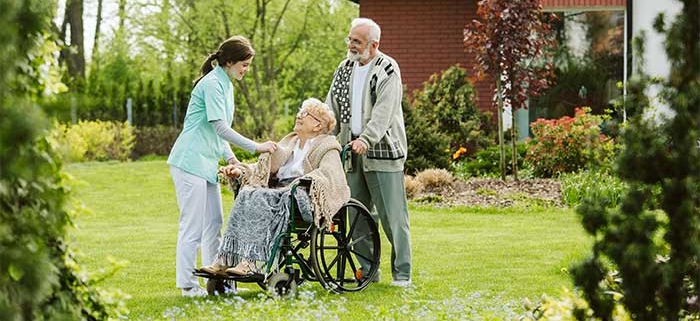Nursing Home Neglect vs. Abuse: Legal Guide for Families
Families rely on nursing home employees to safeguard relatives living in their facilities. Unfortunately, you must know what to do if you suspect nursing home neglect or abuse.
You might notice the staff allowed bedsores to occur or failed to prevent your loved one from falling (neglect) or discover a member of the staff has taken advantage of a resident by taking control of their finances without authorization (a form of abuse).
While nursing home abuse and neglect both harm residents, they differ in intent and legal implications. Recognizing the difference is necessary for protecting loved ones and seeking justice.
The lawyers at Williams Newman Williams have years of experience helping families pursue justice for their loved ones who have experienced abuse or neglect in elder care facilities. We will help you understand the differences and know the signs of elder abuse or neglect in nursing home environments.
What Is Nursing Home Abuse?
Nursing home abuse involves a person inflicting intentional harm on a resident.
Forms of abuse include:
- Physical abuse: Intentionally inflicting injury or pain on residents.
- Emotional abuse:This can include intimidation and harassment as well as verbal assaults.
- Sexual abuse: Unwanted sexual activity, from touching to intercourse, including when the senior does not understand what is happening or cannot give consent to the act.
- Financial abuse: Misappropriating financial resources or withholding them from the senior.
- Medical abuse: Failure to provide appropriate medical intervention or manage a resident’s medical condition.
Remember that abusers may be caregivers, staff or even other residents.
What Is Nursing Home Neglect?
Neglect is a failure to provide proper care, either intentionally or due to lack of oversight.
The main types of neglect of nursing home neglect include:
- Medical neglect: For example, is the staff failing to provide medication on schedule?
- Basic needs neglect: The nursing home does not tend to your loved one’s essential requirements for medication, hygiene, water and/or food. Take sudden weight loss seriously, as this can be a sign of basic necessities being withheld, or a bout of depression caused by neglect.
- Personal hygiene neglect: Have you noticed that your family member is not clean, has bedsores or is forced to live in a dirty room with soiled sheets? The staff might not be providing help with bathing or brushing teeth.
- Social neglect: Patients must be allowed to spend time with other residents, friends and family, and not be forced to be alone. Unlike abuse, neglect often results from understaffing, poor training or administrative failures.
Key Differences Between Abuse and Neglect
- Intent: Abuse is deliberate while neglect is often due to inaction or a lack of oversight.
- Impact: Both can lead to serious harm, but abuse often includes psychological trauma.
- Legal Approach: Abuse may lead to criminal charges, while neglect is typically a civil matter. This is why it’s crucial to determine whether you are looking at a case of abuse or neglect during preparations for a lawsuit.
Warning Signs of Abuse and Neglect
There are many red flags to be on the lookout for, including:
- Physical Signs: You notice unexplained injuries or bedsores. The resident may suffer from poor hygiene. Physical abuse also includes restraining residents against their will physically or through medication.
- Emotional Signs: Does your loved one seem withdrawn? Does he or she seem to be depressed or fearful of the staff or other residents?
- Environmental Signs: Abuse and neglect are often first detected when you see your loved one is living in unsafe conditions, is forced to live in a dirty room, or does not receive basic necessities from the staff.
What To Do If You Suspect Mistreatment
Are you unsure about what to do if you suspect nursing home neglect? Here’s how to proceed with a legal case.
- Document the Evidence: Take notes and obtain photos or videos of the resident. Your lawyer may use this to prove your case in court.
- Speak to Nursing Home Staff: Get the facility’s side of the story before you connect with a lawyer.
- Contact Authorities: You can call a nursing home abuse hotline to connect with local authorities. Do so as soon as possible, as the staff may be harming other residents too.
- Seek Legal Guidance: An experienced legal professional will help you sort out what’s involved in knowing how to prove nursing home negligence or abuse.
Protect Your Love Ones: Take Legal Steps Against Nursing Home Abuse & Neglect
Both abuse and neglect threaten the well-being of nursing home residents. Recognizing the difference helps families take appropriate legal steps. If mistreatment is suspected, immediate action can protect loved ones and hold facilities accountable.
Are you or a loved one experiencing abuse or neglect at a nursing home? The attorneys at Williams Newman Williams have recovered millions for their clients and can help you. Contact us today for a free consultation.

















